Commercial Pest Control is a specialized service for businesses, addressing unique challenges like higher areas, traffic, and health & safety regulations. It involves thorough inspections, tailored treatment plans, safe methods to eliminate infestations, and preventives to stop future ones. The goal is a clean, healthy, productive space. Choosing affordable professionals protects business operations, reputation, and profits from pest damage. Regular control prevents costly repairs, mitigates health risks, and fosters a positive work environment. Effective strategies include understanding pests, regular inspections, sealing entry points, cleanliness, and professional treatments. Selecting a reputable company with proven track records, positive reviews, tailored solutions, eco-friendly methods, and trained staff ensures safe, cost-effective control. Preventive measures like inspections, gap sealing, and proper cleaning significantly reduce infestations. Investing in Integrated Pest Management (IPM) is a financially prudent decision for long-term protection.
In the bustling world of business, maintaining a pest-free environment is crucial for any company’s success. Commercial pest control offers tailored solutions to protect your space and reputation. This comprehensive guide explores the fundamentals of commercial pest management, highlighting the benefits of affordable services. We’ll delve into common pests plaguing businesses and strategic approaches to combat them. From regular inspections to cost-effective measures, learn how to choose the right professionals and implement preventive tactics for long-lasting protection. Discover the key to a thriving business environment: effective yet affordable commercial pest control.
Understanding Commercial Pest Control: The Basics
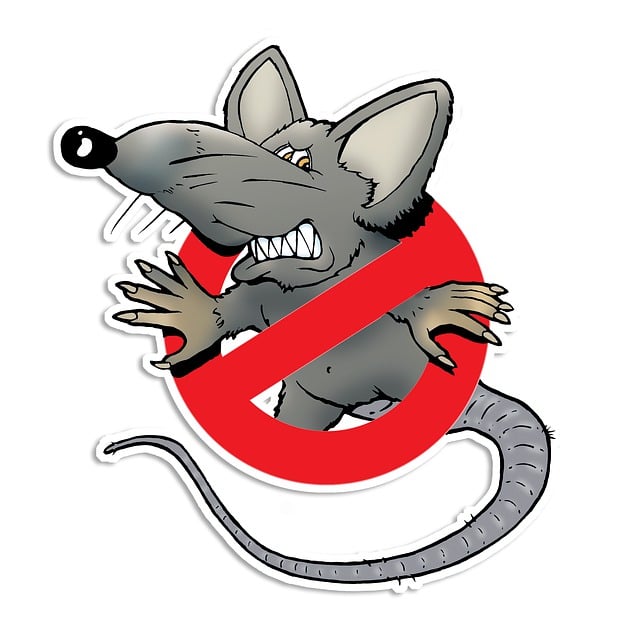
Commercial pest control is a specialized service designed to address pest infestations in commercial settings, such as offices, restaurants, warehouses, and retail spaces. Unlike residential pest control, which often focuses on individual homes, commercial services must consider larger areas, high traffic volumes, and strict health and safety regulations. Understanding the basics of commercial pest control involves grasping these key aspects: first, identifying the specific pests plaguing the property through thorough inspections; second, developing a tailored treatment plan that considers the type of business, building structure, and potential entry points for pests; and finally, implementing effective yet safe methods to eliminate existing infestations and prevent future ones.
The goal of commercial pest control is not just to rid the premises of pests but also to maintain a clean, healthy, and productive environment for employees and customers. This often involves regular maintenance visits, ongoing monitoring, and quick response times to any new infestations. By partnering with reputable professionals who specialize in commercial pest control, businesses can ensure that their operations are free from pest interruptions, minimizing disruptions and potential damage to reputation or profits.
Why Choose Affordable Commercial Pest Services?
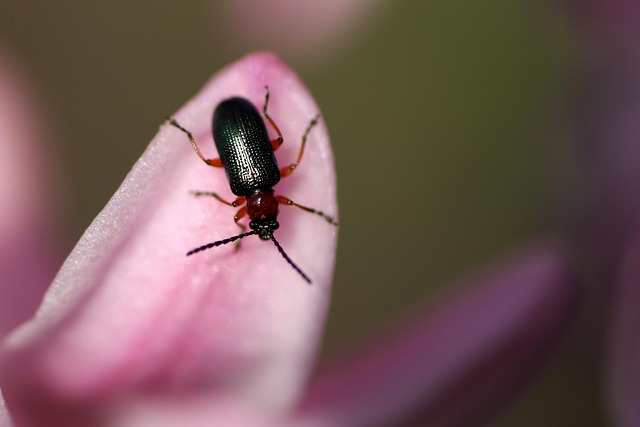
Choosing an affordable commercial pest service is a smart decision for any business owner looking to maintain a clean and healthy work environment. With regular and professional pest control, you can prevent costly damage to your property, protect your employees and customers from health risks, and ensure a positive reputation for your company.
Many businesses often overlook the importance of Commercial Pest Control until an infestation becomes severe, leading to time-consuming and expensive repairs. By opting for affordable services, you gain access to expert knowledge and state-of-the-art solutions without breaking the bank. This proactive approach not only saves money in the long run but also contributes to a productive and peaceful workplace.
Common Pests Affecting Businesses and How to Tackle Them
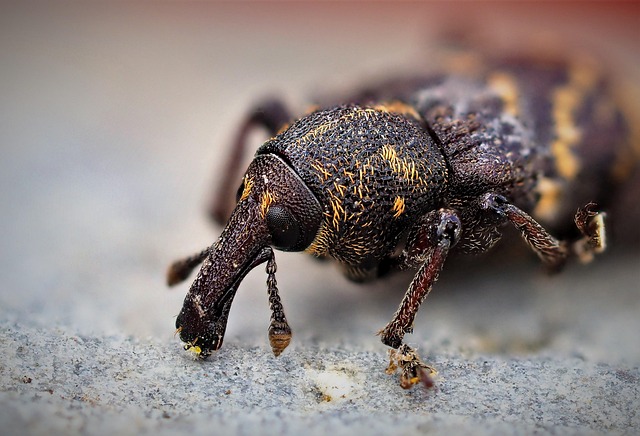
Businesses, from small startups to large corporations, often face common pest problems that can disrupt operations and negatively impact customer experiences. Understanding these pests and implementing effective strategies for commercial pest control is essential for maintaining a healthy work environment. Termites, for instance, are silent invaders that can cause significant structural damage over time; regular inspections and professional treatments are key to prevention.
Rodents like mice and rats are another prevalent issue, seeking shelter in commercial spaces due to food sources and warm environments. To tackle this, businesses should seal entry points, maintain cleanliness, and consider regular pest control visits. Ants, too, can be a nuisance, marching into buildings in search of food; effective ant control measures involve identifying and eliminating their trails and nests. With proper commercial pest control practices, businesses can safeguard their premises, ensure employee well-being, and create a positive impression on clients.
Benefits of Regular Pest Control for Commercial Spaces
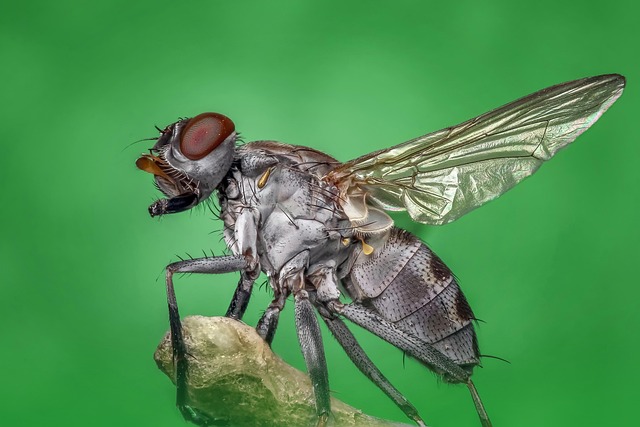
Regular pest control is an essential aspect of maintaining a healthy and productive commercial space. Pests, such as rodents, insects, and termites, can cause significant damage to buildings, disrupt business operations, and pose potential health risks to employees and customers. By implementing a comprehensive Commercial Pest Control strategy, businesses can mitigate these issues and create a safer, more welcoming environment.
Preventive measures are a key benefit of regular pest control visits. Professional exterminators can identify potential entry points and sources of infestation, providing solutions to seal these areas and stop pests from returning. This proactive approach not only saves time and money in the long run but also ensures a consistent level of cleanliness and hygiene, which is crucial for maintaining customer satisfaction and regulatory compliance.
Selecting the Right Pest Control Company for Your Business
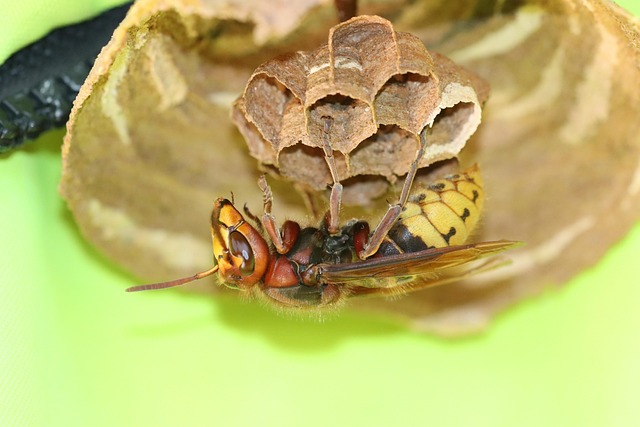
When selecting a commercial pest control company, it’s crucial to consider several factors. First and foremost, ensure they have a proven track record in dealing with similar businesses. Their expertise should align with your specific needs, whether that’s managing rodents, insects, or other pests common in commercial settings. Look for companies that offer tailored solutions rather than a one-size-fits-all approach, as this indicates a deeper understanding of the challenges facing businesses.
Reputation and customer reviews are also vital. Check online platforms to gauge their standing among former clients. A reliable pest control service should be transparent about its methods, use environmentally friendly practices where possible, and provide detailed reports on treatments and results. Additionally, their team should be well-trained, licensed, and insured to handle any potential risks or damages during the course of their work.
Cost-Effective Strategies for Commercial Pest Management

In the realm of commercial pest management, cost-effective strategies are paramount for businesses aiming to maintain a clean and safe environment without breaking the bank. One key approach is preventive measures, which involve regular inspections and maintenance to identify and seal entry points. By eliminating potential habitats and food sources, pest populations can be deterred naturally, reducing the need for frequent chemical interventions. Implementing simple yet effective practices like proper waste management, sealing gaps in walls or windows, and maintaining a clean work environment significantly lowers the risk of pest infestations.
Additionally, integrating eco-friendly commercial pest control methods can both save costs and promote sustainability. Natural repellents, biological controls, and targeted treatments minimize the use of harmful chemicals, reducing environmental impact and potential health risks. Many businesses are discovering that investing in integrated pest management (IPM) programs, which focus on long-term prevention and least-toxic solutions, yields substantial savings over time. IPM strategies empower commercial spaces to achieve effective pest control while maintaining a responsible and cost-efficient approach.
Preventive Measures: Reducing Pest Infestations in the Long Run

Preventive measures play a significant role in managing and reducing commercial pest infestations over the long term. Implementing robust pest control strategies at the outset can save businesses substantial time, money, and resources that would otherwise be spent on curative treatments. Simple yet effective practices like regular cleaning and sanitation, proper waste management, and sealing entry points can significantly hinder pest access and breeding grounds.
Moreover, staying informed about potential pest attractants specific to your industry is vital. For instance, food processing facilities must be vigilant against pests drawn to stored products, while offices with potted plants require regular inspections for insects that thrive in such environments. Proactive monitoring, coupled with prompt action when signs of infestation are detected, forms the bedrock of an affordable and sustainable commercial pest control strategy.
